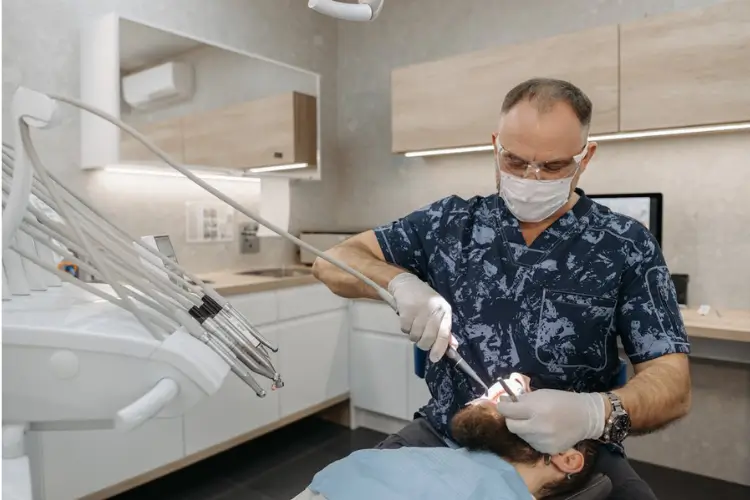Entering a drug rehab program is a life-changing decision that lays the groundwork for a healthier and more fulfilling life. Engaging in the event completely will help you to optimize the advantages and provide you with the means to overcome addiction. Rehab offers an opportunity to rebuild, reconnect, and empower oneself with resilience—not only a place for detoxification. By deliberately embracing each aspect of the program, you can lay the groundwork for long-term recovery.
Engage Fully in Therapy Sessions and Group Discussions
The majority of rehabilitation programs, whether it’s a drug rehab in Austin or other treatment facilities, focus on therapy sessions and group discussions, which provide a secure environment for discussing personal struggles and learning from others. Engaging actively in these sessions increases self-awareness and clarifies the underlying reasons for addiction. Sharing your experiences lets therapists and counselors provide direction tailored to your particular needs and objectives.
Participating in group conversations with others fosters community and shared understanding. Learning about the experiences and points of view of others helps you realize that you are not alone, so developing empathy and reciprocal support. This sense of connection can be extremely empowering because it reinforces your determination to recover and offers encouragement during difficult times. Fully embracing therapy and group work results in a strong network of support that extends beyond the program.
Establish a Daily Routine for Stability and Focus
A disciplined daily schedule enhances stability during rehabilitation. When attending a program for Drug rehab Colorado (or indeed elsewhere), sticking to a routine will help to stabilise your mental state and allow you to become more involved with all aspects of the rehab process, which might improve your ability to get help. Furthermore, following a timetable helps you control your day and cut out unnecessary, wasted time that could cause temptation or distraction. A schedule also helps you to develop self-discipline by motivating you to own your path of recovery and to approach every day with intention.
Include meaningful activities in your daily routine, such as exercise, meditation, or creative endeavors. These exercises improve mental clarity and offer a good means of releasing tension, thereby enabling you to remain committed to your objectives. Consistency reinforces positive habits, making it easier to incorporate these practices into your daily life after rehab. As you pursue long-term sobriety, a well-established schedule gives direction and helps you to make every day seem meaningful.
Embrace New Coping Mechanisms and Skills
Drug rehabilitation programs frequently offer a variety of tools and techniques to help manage stress, cravings, and emotional difficulties. These coping strategies are crucial in creating a life free from drugs for solace or escape. Often presented in rehab to help you negotiate difficult situations are mindfulness, cognitive-behavioral techniques, and relaxation activities.
Through practice and acceptance of these abilities, you equip yourself with a better means of managing stress and obstacles. These coping strategies get stronger and more natural the more times you apply them in actual situations. These abilities help you to get confidence in your capacity to meet obstacles without resorting to past behavior. Embracing these new strategies strengthens resilience and provides a means for maintaining emotional balance and sobriety.
Create Good Relationships with Staff and Peers
The relationships you create throughout therapy might affect your path of recovery long after. Engaging with peers on a similar road offers a support network of people who understand the particular challenges and triumphs of addiction. Creating friendships based on the same experiences helps to build trust and a sense of belonging, which can be incredibly comforting and motivating.
Developing a rapport with the drug rehab center staff can also be beneficial when it comes to improving the results of your stay. Staff members, including counselors and support workers, are there to support you and by being closer with them, you may feel better during the rehab process. By trusting these experts and seeking their insights, you can maximise the benefit gained from their experienced, knowledge and insight into recovery. Good relationships establish a supportive atmosphere that provides you with a consistent network of understanding and encouragement as you negotiate every level of recovery.
Set Personal Goals and Track Your Progress
Setting specific, attainable goals during your stay in rehab provides structure to your recovery process. These objectives inspire you to remain dedicated and focused and provide you with a sense of purpose. Every objective—from creating better habits to cultivating emotional resilience to reconnecting with hobbies—helps one move toward a more contented life.
Tracking your progress allows you to recognize small victories along the way, which strengthens your efforts and boosts your confidence. You build momentum as you accomplish each objective, which helps you to feel more able to handle more difficult tasks. This sense of progress fosters a positive outlook on recovery, inspiring you to keep striving for improvement. Setting goals changes rehabilitation from a temporary commitment into a lifetime of personal development and success. Additionally, choosing a reputable Drug Rehab London (or your local area) is essential. Professional guidance, structured programs, and a supportive environment ensure your goals are realistic, your progress is carefully monitored, and your recovery journey remains safe and sustainable.
Conclusion
Making the most of a drug rehab program requires dedication, openness, and a willingness to consider new perspectives. You lay a solid foundation for recovery by committing fully to therapy, creating routines, honing coping mechanisms, fostering healthy relationships, and defining personal objectives. Each step in the program strengthens your resolve, allowing you to live a life of resilience, purpose, and freedom from addiction.




